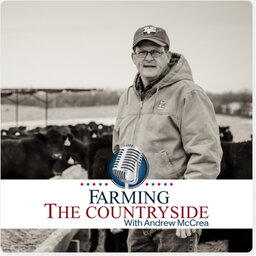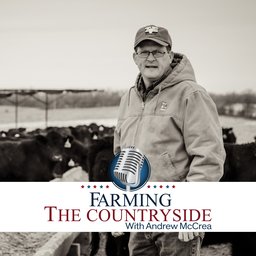FTC Episode 240: Opportunities to Get More Value from your Land – Land Trust
We often think of the farm value of land as it’s related to growing crops or livestock. However, there are other opportunities to increase gains from that land and perhaps not impact the other enterprises taking place on that land. Those opportunities can involve far more than hunting rights and now a new platform is helping connect landowners and the general public so both sides can get more revenue and enjoyment from the land.
In 1 playlist(s)
Farming the Countryside with Andrew McCrea
Andrew McCrea hosts a farmer-to-farmer conversation focusing on topics of interest in production agr…Social links
Follow podcast
Recent clips

FTC Episode 392: How to Navigate Key Trends Impacting the Future of Agriculture
25:17

FTC Episode 391: Top Tips from the Top Producer Next Gen Winner
25:13

FTC Episode 390: Machinery Pete has Never Seen This Trend in His Lifetime. What is it?
25:20
 Farming the Countryside with Andrew McCrea
Farming the Countryside with Andrew McCrea